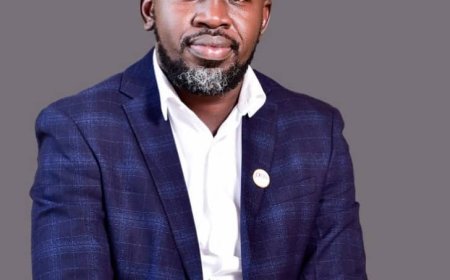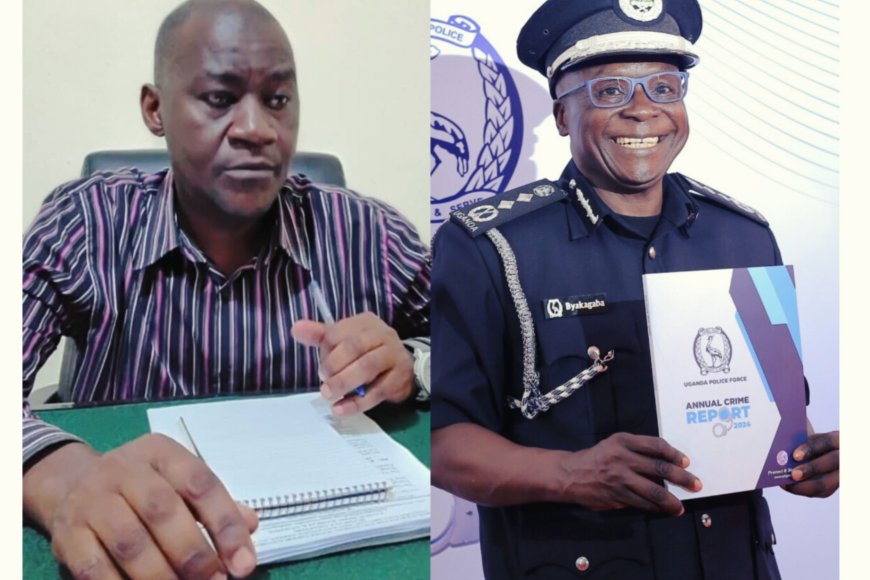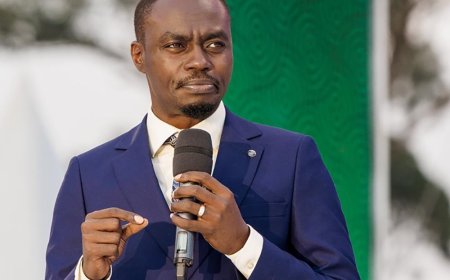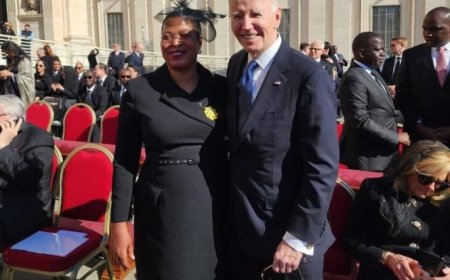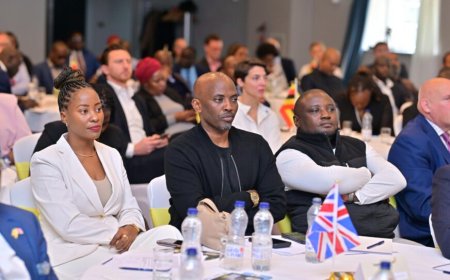Kibedi Ismail’s Perspective on the Symbiotic Relationship Between Politics and Development
Kibedi Ismail, the Principal National Guidance Officer at the Ministry of ICT and National Guidance, offers a nuanced perspective on this interplay, arguing that politics and development are inextricably linked and must be understood in a complementary manner rather than as opposing forces.

The relationship between politics and development has long been a subject of scholarly discourse. In Uganda, this dynamic is currently exemplified by the ongoing road rehabilitation projects in Kampala City, a crucial infrastructural initiative that underscores how political decisions directly shape economic and social progress. Kibedi Ismail, the Principal National Guidance Officer at the Ministry of ICT and National Guidance, offers a nuanced perspective on this interplay, arguing that politics and development are inextricably linked and must be understood in a complementary manner rather than as opposing forces.
Kibedi Ismail asserts that politics is an inherent aspect of human interaction and governance, a view echoed by Aristotle’s assertion that “man is a political animal.” Politics, in its broadest sense, involves decision-making processes that determine resource allocation, policy direction, and governance structures. Harold Lasswell, a renowned political scientist, defined politics as “who gets what, when, and how,” highlighting its critical role in resource distribution and policy formulation.
In Uganda, politics plays a pivotal role in shaping national development policies, particularly in infrastructure. The Kampala Capital City Authority (KCCA) is spearheading the Kampala City Roads Rehabilitation Project (KCRRP), a four-year initiative valued at $288 million. Funded by the African Development Bank and the African Development Fund, this project is a testament to how political will and governance structures influence development outcomes. The initiative aims to:
Rehabilitate 69.70 km of roads
Improve 22 traffic junctions
Develop 123 km of non-motorized transport facilities
Install 1,600 energy-efficient streetlights Procure 50 eco-buses and road maintenance equipment
Establish a Road Safety Unit within KCCA
Train marginalized groups in construction and entrepreneurship
According to Kibedi, these efforts demonstrate that political decisions regarding funding allocations, policy priorities, and governance mechanisms directly impact development. Without political commitment, such large-scale infrastructure projects would struggle to materialize.
Kibedi Ismail strongly believes that politics works for development rather than against it. While some Ugandans question why major road rehabilitations are happening now, at a politically charged moment leading up to the 2026 elections, he urges citizens to “remove politics out of development.” He argues that politics is not merely about elections but about long-term governance and strategic planning.
To reinforce his argument, Kibedi references biblical wisdom from Ecclesiastes: “There is a time for everything.” He suggests that infrastructure development is a continuous process, and its timing should not be viewed through a political lens alone. Instead, Ugandans should embrace all development initiatives irrespective of political affiliations, as these projects benefit everyone, particularly traders and transporters who rely on efficient road networks.
Renowned development economist Lisa Cameron has extensively studied the socio-economic challenges faced by disadvantaged populations in developing countries. Her research underscores that political stability and effective governance are crucial for implementing policies that alleviate poverty and foster development. Without sound political frameworks, development initiatives may fail to reach their intended beneficiaries.
Similarly, Donald Harris, an emeritus professor of economics at Stanford, has explored the dynamics of capitalism and global economic integration. His work suggests that political decisions shaping economic policies are fundamental in determining a nation’s developmental trajectory. In Uganda, infrastructural investments such as the KCRRP and the Kampala City Roads and Bridges Upgrading Project (KCRBUP)—funded by the United Kingdom Export Finance (UKEF) at £250 million—reflect the government’s commitment to leveraging political frameworks for economic growth. The KCRBUP aims to reconstruct over 270 km of roads in Kampala, addressing long-standing challenges such as potholes and inadequate drainage systems.
Kibedi Ismail emphasizes that development should transcend political affiliations. He urges Ugandans to support initiatives that improve the country’s infrastructure, regardless of their political leanings. In his view, national development is a collective responsibility that requires unity, collaboration, and a positive mindset.
“Ugandans must appreciate that politics exists wherever people interact with one another to make decisions that affect us all collectively, but most especially the wananchi (ordinary citizens) who have to struggle to bring goods from different regions to the markets in Uganda,” Kibedi notes.
His call to action is clear: infrastructure development should not be politicized. Whether one supports the ruling government or the opposition, everyone benefits from improved roads, modernized transport systems, and enhanced public services.
The case of Kampala’s road rehabilitation projects illustrates the deep connection between politics and development. Political decisions shape economic policies, governance structures, and funding priorities, all of which directly impact infrastructural development. In turn, robust infrastructure facilitates economic activities, enhances the quality of life, and propels national progress.
Kibedi Ismail’s insights challenge Ugandans to adopt a broader perspective on development. Rather than viewing infrastructure projects as politically motivated, he encourages citizens to recognize the long-term benefits of such initiatives. Sustained political commitment, strategic governance, and citizen support are essential for achieving comprehensive and inclusive development outcomes.
By embracing a unified approach, Uganda can harness the full potential of political frameworks to drive economic growth, improve living standards, and foster national prosperity.












